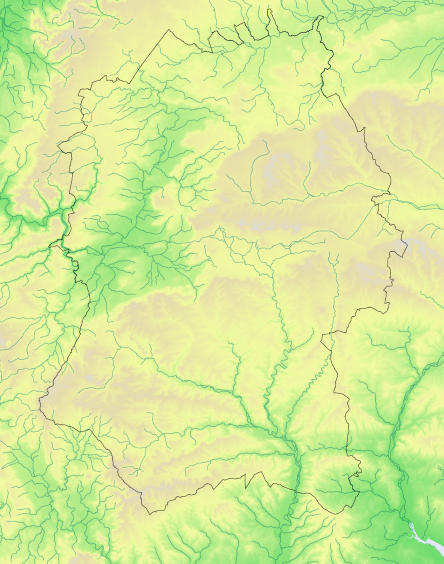Bullfinch Pyrrhula pyrrhula
Winter distribution change
Moderately common resident of woods and scrub, visiting gardens in winter
Atlas species lists
- Breeding distribution 1995–2000
- Summer abundance 1995–2000
- Winter distribution 1995–2000
- Winter abundance 1995–2000
- Breeding distribution 2007–2012
- Summer abundance 2007–2012
- Winter distribution 2007–2012
- Winter abundance 2007–2012
- Breeding distribution change
- Summer abundance change
- Winter distribution change
- Winter abundance change
More Bullfinch maps
- Breeding distribution 1995–2000
- Summer abundance 1995–2000
- Winter distribution 1995–2000
- Winter abundance 1995–2000
- Breeding distribution 2007–2012
- Summer abundance 2007–2012
- Winter distribution 2007–2012
- Winter abundance 2007–2012
- Breeding distribution change
- Summer abundance change
- Winter distribution change
- Winter abundance change
More maps for this atlas
Map explanation
This map shows the changes which occurred in the winter distribution of the species between 1995-2000 and 2007-2012, but only in the limited selection of tetrads that were surveyed in winter for Birds of Wiltshire (Wiltshire Ornithological Society 2007).
Key
Status
Nos tetrads

Absent to present
184
42%

Present in both
158
36%

Present to absent
38
9%

Not surveyed
Bullfinches breed across Europe from Fenno-Scandia south to the uplands of Mediterranean countries and from Ireland east through most of continental Europe except for the plains of the Balkans, Ukraine and southern Russia. From the Caucasus, they are found east to northern Turkey and Iran, then across northern Asia from the Urals through northern Siberia to Kamchatka and Japan. Most populations are at least partly migratory - in winter their range extends to include much of the continental south - though the British race P.p.pileata is almost entirely sedentary.
Bullfinches are found throughout mainland Britain. Their numbers have shown considerablt fluctuations over time, increasing rapidly during the 1950s to the extent of being a serious pest of fruit farms then declining steeply between the late 1970s and the early 1980s, before easing off and showing signs of an upturn by the turn of the century. Bird Atlas 2007-2011 recorded a 39% decrease in UK overall numbers since the 1968-72 Breeding Atlas, with the losses mostly concentrated in southeast England and northeast Scotland.
In Wiltshire they are commonest in the wooded areas around the periphery of the county and rarest or completely absent from open upland areas. Though never rare (successive national atlases have recorded them in all of the county's 10km squares) they do appear to be on the increase in recent years: Birds of Wiltshire recorded them in 532 tetrads with breeding in 213. WTA2 recorded them in 579 tetrads, breeding in 309.
References
The following references are used throughout these species accounts, in the abbreviated form given in quotation marks:
“1968-72 Breeding Atlas” – Sharrack, J.T.R. 1976: The Atlas of Breeding Birds in Britain and Ireland. T. & A. Poyser
“1981-84 Winter Atlas” – Lack, P.C. 1986: The Atlas of Wintering Birds in Britain and Ireland. T. & A. Poyser
“1988-91 Breeding Atlas” – Gibbons, D.W., Reid, J.B. & Chapman, R.A. 1993: The New Atlas of Breeding Birds in Britain and Ireland 1988-91. T. & A. Poyser
“Birds of Wiltshire” – Ferguson-Lees, I.J. et al. 2007 : Birds of Wiltshire, published by the tetrad atlas group of the Wiltshire Ornithological Society after mapping fieldwork 1995-2000. Wiltshire Ornithological Society.
“Bird Atlas 2007-2011” – Balmer, D.E., Gillings, S., Caffrey, B.J., Swann, R.L., Downie, I.S. and Fuller, R.J. 2013: Bird Atlas 2007-2011: the Breeding and Wintering Birds of Britain and Ireland
“WTA2” – ("Wiltshire Tetrad Atlas 2 ") the present electronic publication, bringing together the Wiltshire data from “Birds of Wiltshire” and “Bird Atlas 2007-11”, together with data from further fieldwork carried out in 2011 and 2012.
"Hobby" - the annual bird report of the Wiltshire Ornithological Society.

